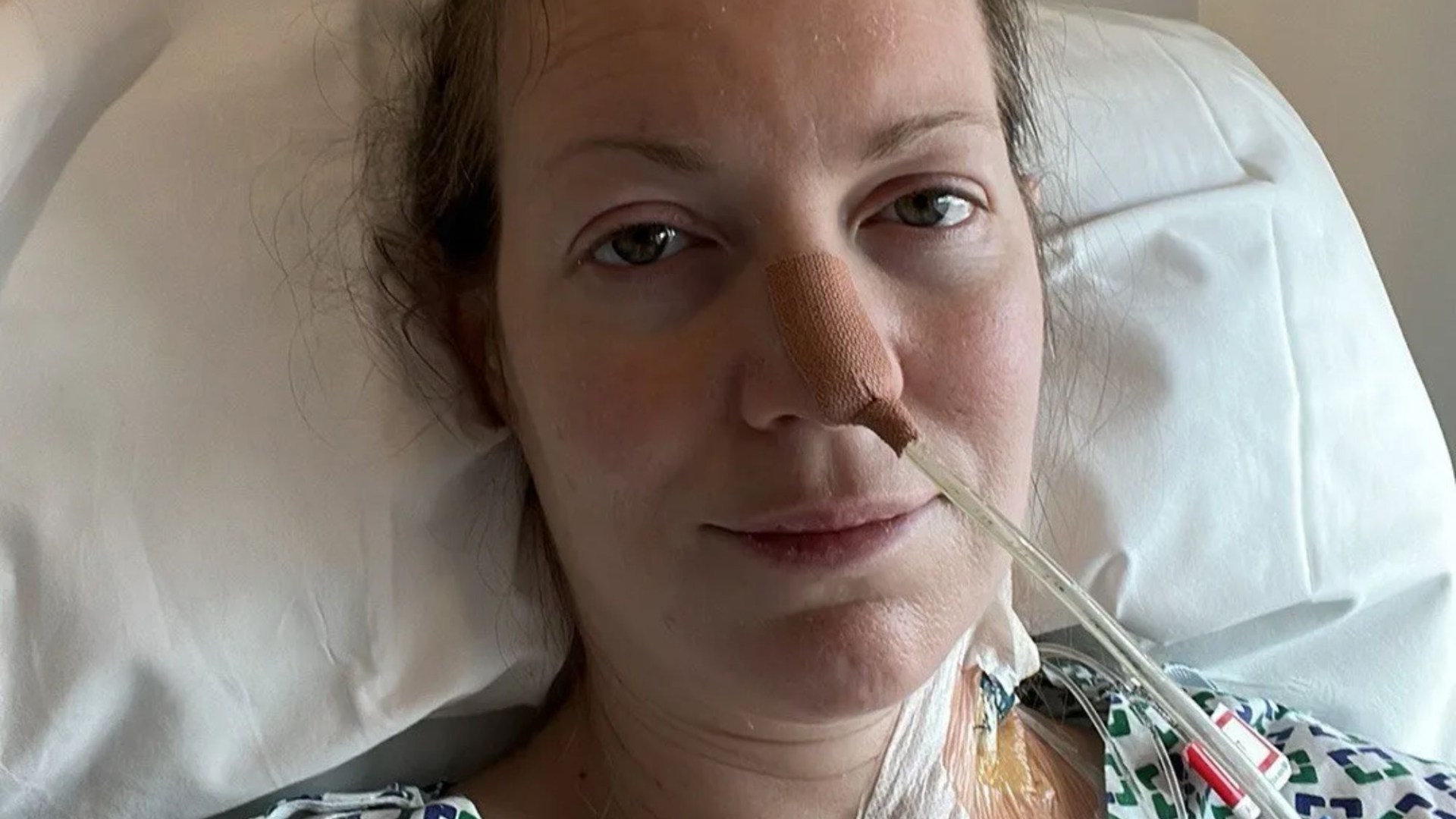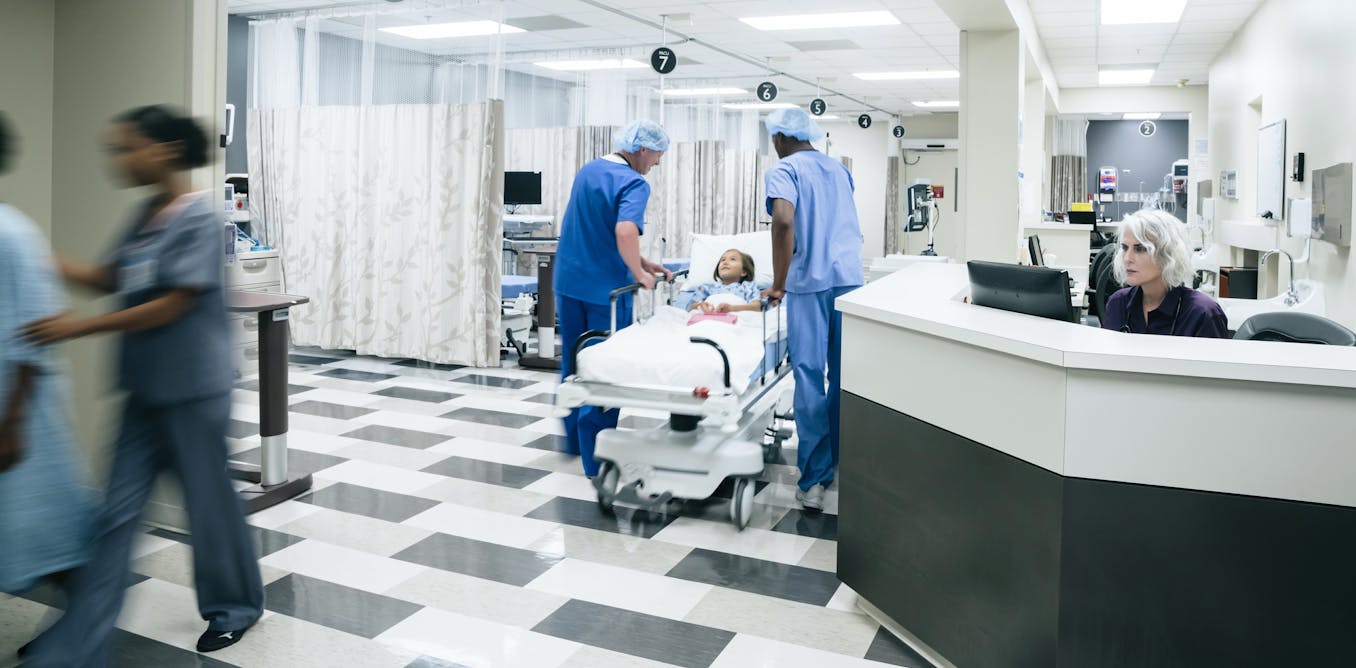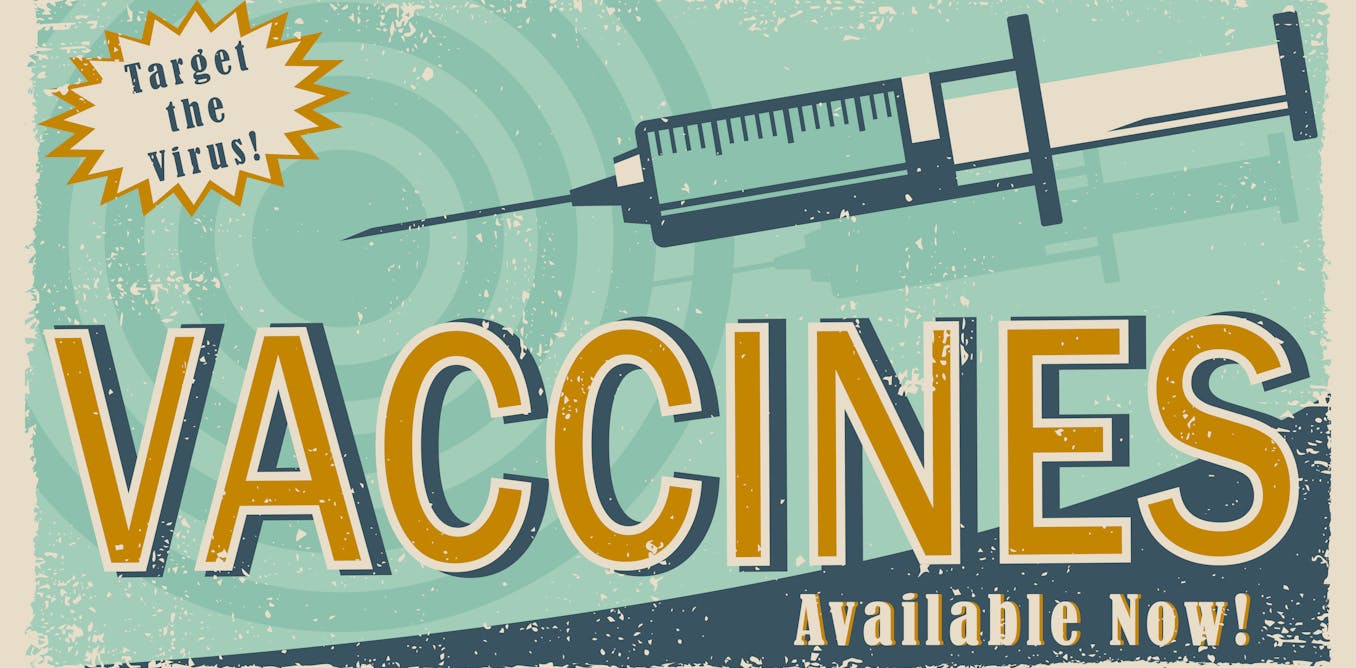A MUM-of-three was stunned to discover she was suffering from stage four bowel cancer – after doctors told her she had a harmless urine infection.
Zoe Gardner-Lawson, 36, suddenly began to feel a constant dull pain in her lower back in August 2024.
7

7
Her GP diagnosed her with a UTI, and prescribed her five days’ worth of antibiotics.
But after the pain refused to go away, Zoe went straight to A&E to find out what was going on.
Her condition was deteriorating, and doctors didn’t know why.
In October, a CT scan revealed a 2in (5cm) tumour on her bowel.
READ MORE ON BOWEL CANCER
Now, Zoe is on her fifth round of chemotherapy – and hopes the minimum age for bowel cancer screenings will one day drop to “at least” 30.
Zoe, an HR head of department from Bracknell, Berkshire, said: “If my disease was caught earlier, it would’ve been easier to treat.
“I think the minimum age for testing needs to be reduced.
“My professor, Jamie Murphy, told me that I could’ve been living with this tumour for up to four years before my diagnosis – that’s terrifying.
“If all goes well, I still have a chance at achieving a ‘no evidence of disease’ status, but it all depends on these next couple of years.
“I’m young enough that they’re not considering it a terminal diagnosis just yet.”
Despite feeling “fit and healthy” previously, Zoe began experiencing a constant dull sensation in her lower back last summer.
She didn’t like going to the GP and rarely felt anxious about her health, but on August 26, decided to book a phone appointment with her doctor.
Zoe was told she may have a UTI, and was prescribed a week’s worth of antibiotics.
When the feeling didn’t go away, she was prescribed two further doses across one month.
“There was just no change – and by my third dose, I’d really deteriorated,” she said.
“I was basically bedridden – I felt so unwell, and the back pain had spread to my abdomen, too.”
On September 19, she had another appointment with her GP, who advised her to go straight to A&E.
Doctors checked Zoe’s symptoms and gave her a physical examination, concluding she may have kidney stones.
But a CT scan confirmed this wasn’t the case – and she was referred to a different department for some blood tests.
I’ve thrown the kitchen sink at it; I want to improve my prognosis as much as possible
Zoe Gardner-Lawson
“My blood was checked for infection markers, called creatine reactive protein,” she added.
“They were rising, until they reached 364n/mol – a normal range for women is 52.9n/mol and 91.9n/mol.
“A general surgeon came to see me, and he said it looked like I had fluid build-up on my abdomen.
“I threw my toys out the pram then; I told them I wasn’t going to leave until I had a full-body CT.”
Zoe underwent a CT scan, and an hour later, she was visited by another consultant.
He told her she had a perforation on her bowel and needed to be admitted immediately.
A second opinion noticed she had a lime-sized tumour on her bowel causing the perforation, which had spread to her liver, peritoneum and stomach lymph nodes.

7

7

7
Zoe said: “I transferred to the Cleveland Clinic [St John’s Wood, London] to continue my treatment.
“I saw Prof Murphy, who proposed a plan for me.
“I needed emergency surgery to remove the tumour on my bowel, get rid of all the fluid and waste which seeped out, and then re-evaluate.”
The operation went ahead on October 3 and lasted four hours.
A biopsy revealed the tumour was a cancerous blastoma, and Zoe was told she’d need to triple her chemo dosage per round.
“I’ve tolerated it as well as anybody can – it’s pretty hardcore,” she said.
“I’m on round five of eight in total – it’s three chemo drugs per round.
“I’ve admitted myself to a natural remedies clinic to balance it out with IV vitamin C infusions and mistletoe injections – as well as diet and exercise guidance.
“I’ve basically just taken the approach to throw the kitchen sink at it; I want to improve my prognosis as much as possible.”
Hope for the future
Zoe says if she’d been offered a faecal immunochemical test [FIT] earlier, doctors may have caught her cancer years ago.
These are at-home bowel cancer screening tests offered to everyone aged 54 to 74 every two years, soon to be available to over-50s.
Zoe, who is raising money for her medical costs on GoFundMe, believes the age for standard testing should be lowered to “at least” 30, if not 25.
For now, she says her prognosis isn’t certain – and doctors are waiting to see tumour shrinkage from her chemotherapy.
“The plan is, once I’ve had my sixth round of chemo, they’re hoping I’ll have responded well,” she added.
“All being well, I’ll need to be booked in for a second surgery to remove remaining stomach lymph nodes and two tumours on my liver.”
What are the red flag warning signs of bowel cancer?
IT’S the fourth most common cancer in the UK, the second deadliest – yet bowel cancer can be cured, if you catch it early enough.
While screening is one way of ensuring early diagnosis, there are things everyone can do to reduce their risk of the deadly disease.
Being aware of the signs and symptoms of bowel cancer, spotting any changes and checking with your GP can prove a life-saver.
If you notice any of the signs, don’t be embarrassed and don’t ignore them. Doctors are used to seeing lots of patients with bowel problems.
The five red-flag symptoms of bowel cancer include:
- Bleeding from the back passage, or blood in your poo
- A change in your normal toilet habits – going more frequently for example
- Pain or a lump in your tummy
- Extreme tiredness
- Losing weight
Tumours in the bowel typically bleed, which can cause a shortage of red blood cells, known as anaemia. It can cause tiredness and sometimes breathlessness.
In some cases bowel cancer can block the bowel, this is known as a bowel obstruction.
Other signs include:
- Gripping pains in the abdomen
- Feeling bloated
- Constipation and being unable to pass wind
- Being sick
- Feeling like you need to strain – like doing a number two – but after you’ve been to the loo
While these are all signs to watch out for, experts warn the most serious is noticing blood in your stools.
But, they warn it can prove tricky for doctors to diagnose the disease, because in most cases these symptoms will be a sign of a less serious disease.

7

7




